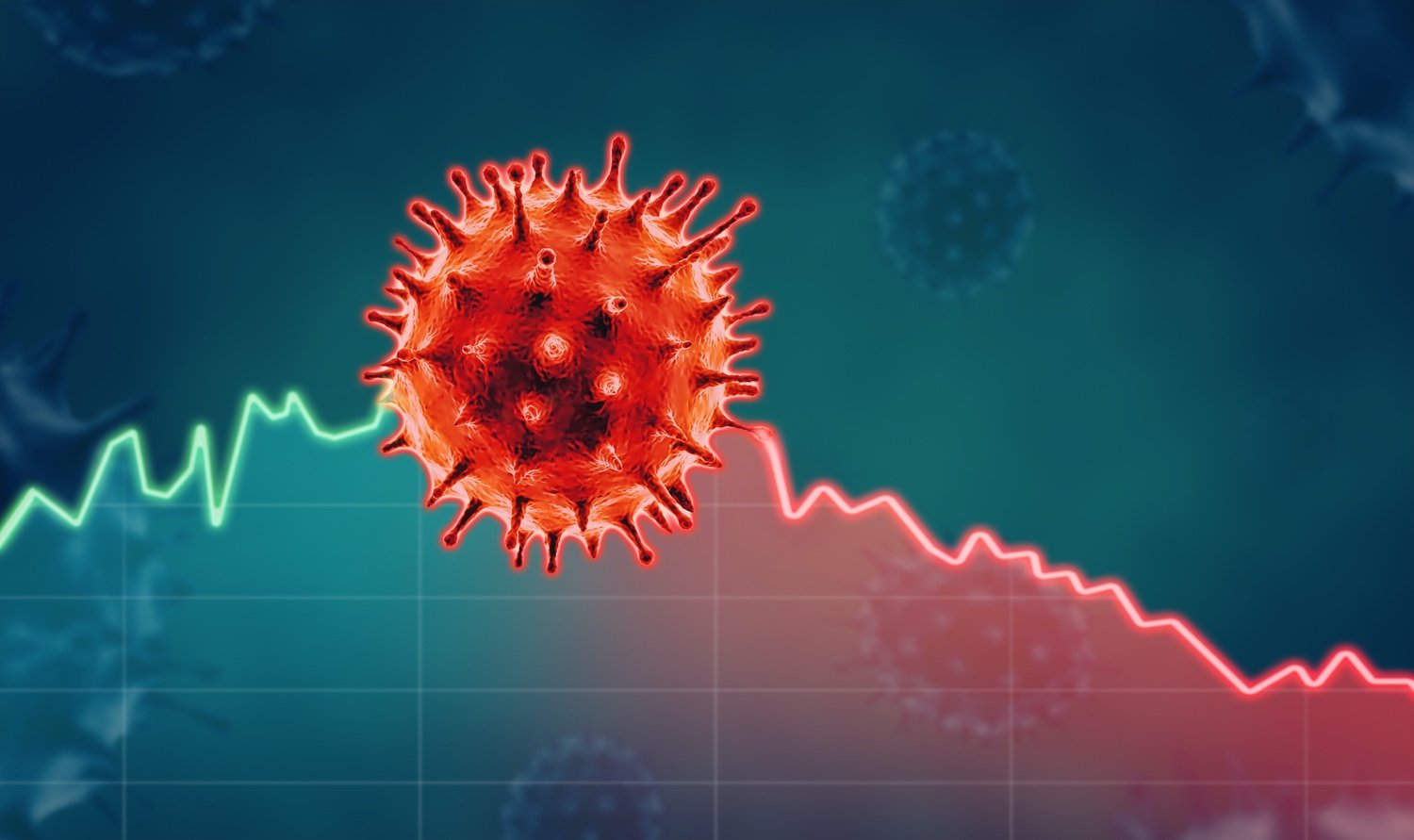We were interested to understand what impact the COVID-19 lockdown was having on people’s normal routines and well-being. During the week of April 6th, 2020, we surveyed more than 100 people about their experience, most of them New Zealanders. This page provides a summary of our analysis of people’s responses.
The questions
We asked a series of questions about the impact on different areas of people’s lives. These included;
- Stress and anxiety
- Weight
- Sleep
- Productivity
- Nutrition & healthy eating
- Exercise
- Relationship with others in your household
We asked “How have you been negatively impacted by the lockdown?” and asked for a response on a scale of 1 to 7. An answer between 1 and 3 indicated the lockdown had improved the area of their life. An answer of 4 meant no impact. And an answer of 5 to 7 indicated that the area had been negatively impacted.

We then asked “If there was just one new habit that you could start building (or breaking) now, what would it be?”. People responded with free text so we marked each response with an indicative tag. For instance “More regular exercise” or “exercising more” were tagged with “Exercising”. There was a total of 19 different habit change tags.
- Change sleep routine
- Creative pastimes
- Drinking more water
- Eating less
- Exercising
- Focus on relationships
- Gardening
- Healthier eating
- Less alcohol
- Less screen time
- Losing weight
- Meditation & Mindfulness
- Productivity
- Reading more
- Reducing stress
- Routine & self-discipline
- Self improvement
- Spending less
- Stop smoking
We then asked 2 final questions.
“How would you rate your motivation to make this change?”

and “Have you already started making a change around this habit?”
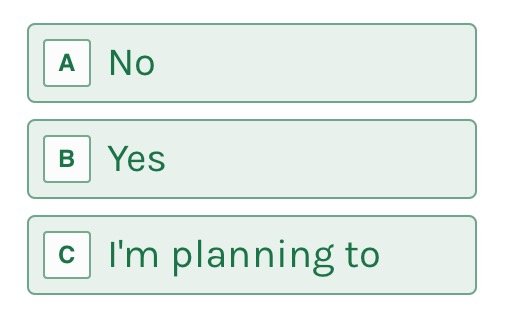
How to read the impact graphs
The first set of graphs looked at impact in seven different areas of people’s lives. The horizontal “x axis” shows the impact response people gave (scale of 1 to 7) , and the vertical “y axis” shows how many people responded. These graphs can be interpreted by comparing the amount of “green bar-ness” on the left compared to the right. For instance if there is more green on the right than the left that means that more people are feeling worse off in this area due to the effects of COVID-19. And of course if there are more responses on the left hand side then, in this area, on average, people are positively impacted by the lockdown.
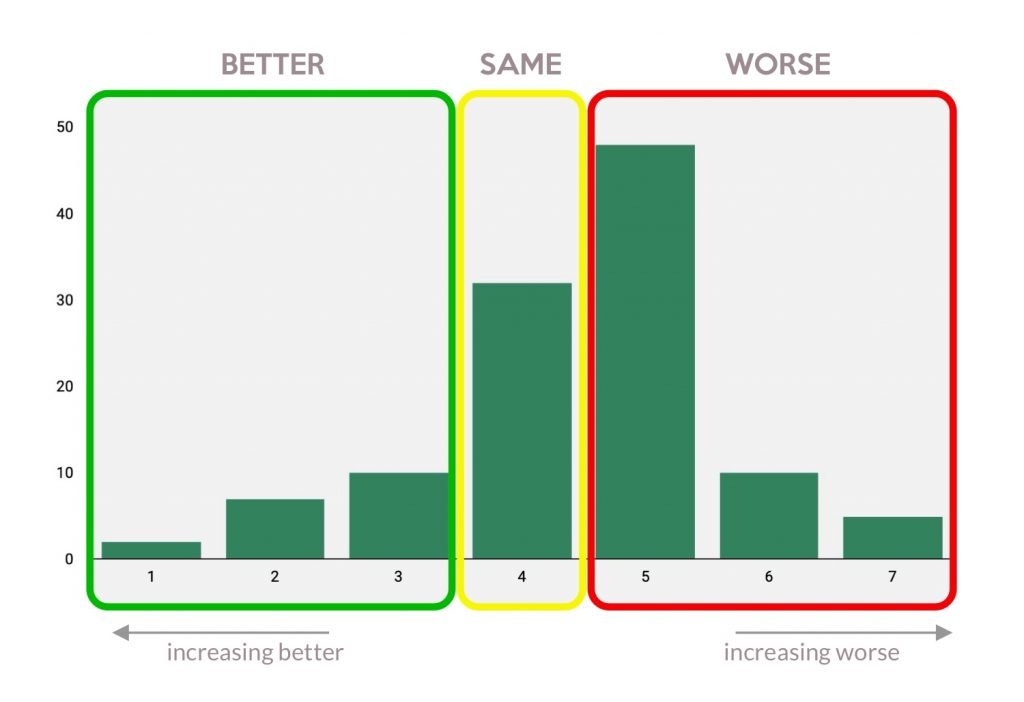
The results
Stress & anxiety 👎🏻👎🏻👎🏻
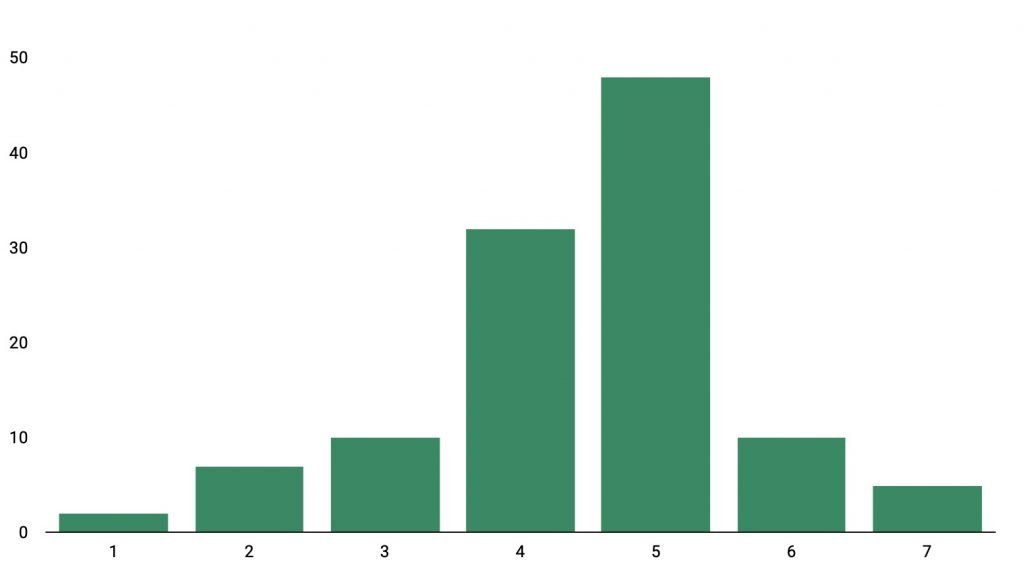
There are a total of 63 responses on the right (worse off) compared to 18 on the left (better off). As we might expect then people’s stress and anxiety has increased since the lockdown. The difference between the two is a negative impact factor of 3.5; that is 3.5 times more people feel their stress and anxiety is worse since the lockdown compared to those who feel better off. 28% of respondents said that the lockdown had had no impact on their stress and anxiety.
Weight 👎🏻👎🏻
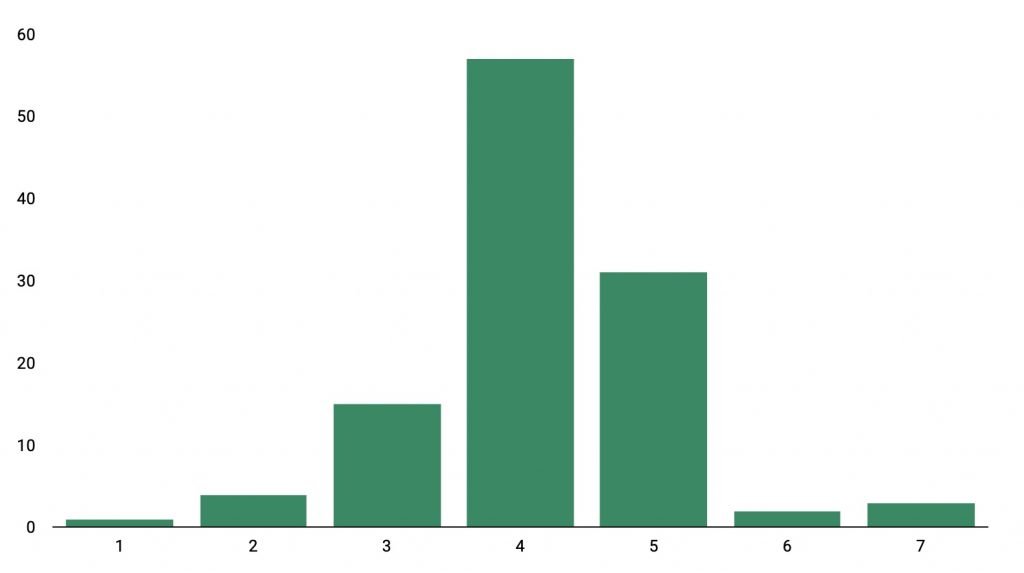
37 people felt their weight had been negatively impacted due to COVID-19 compared with 20 who felt better off. The difference between the two is a negative impact factor of 1.85. Half of respondents (50%) said that the lockdown had had no impact on their weight.
Sleep 👎🏻👎🏻
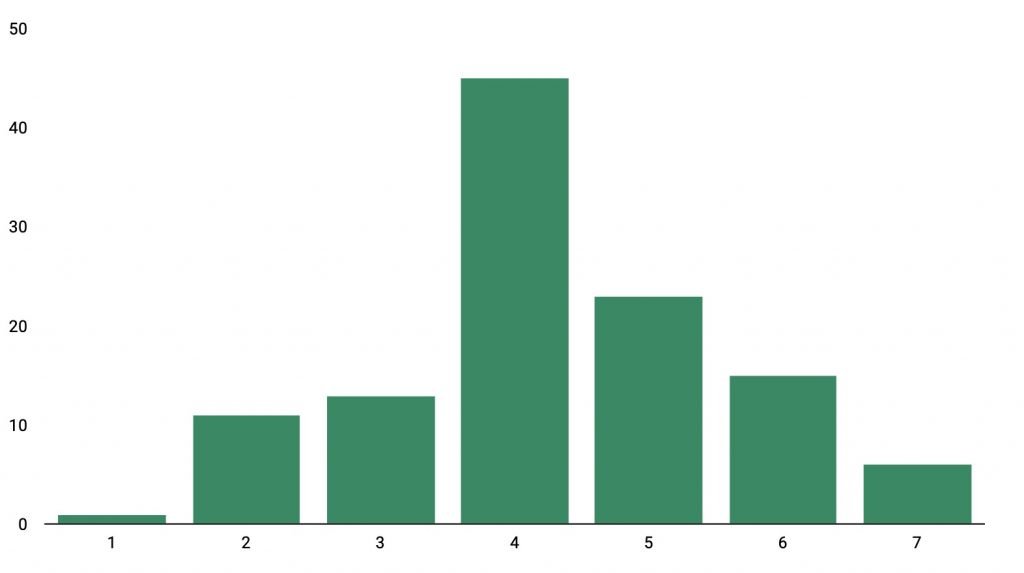
45 people felt their sleep had been negatively impacted due to COVID-19 compared with 25 who felt better off. The difference between the two is a negative impact factor of 1.8. 39% of respondents said that the lockdown had had no impact on their sleep.
Productivity 👎🏻👎🏻
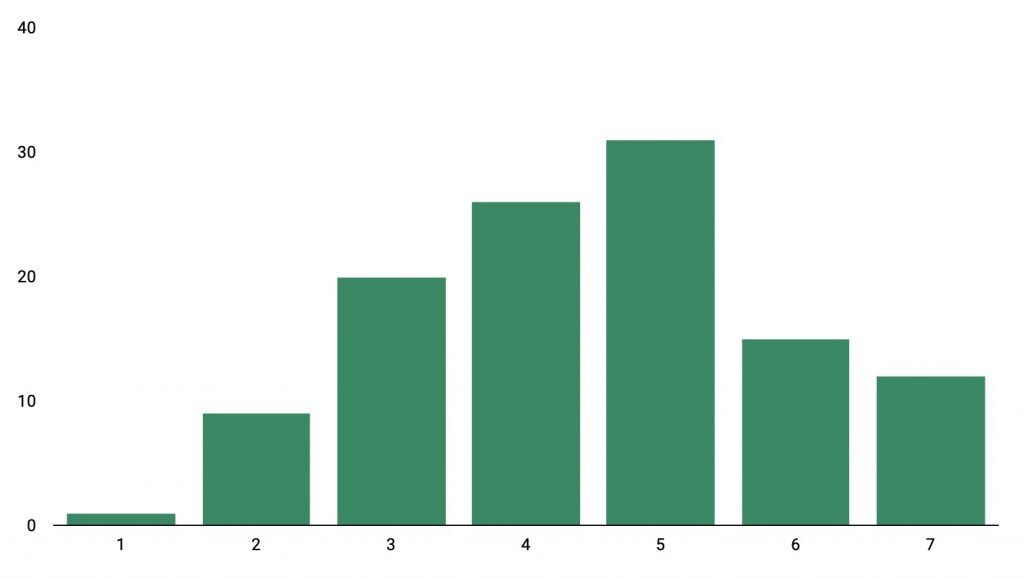
59 people felt their productivity had been negatively impacted due to COVID-19 compared with 30 who felt better off. The difference between the two is a negative impact factor of 2. 22% of respondents said that the lockdown had had no impact on their productivity.
Nutrition & healthy eating 👍🏻
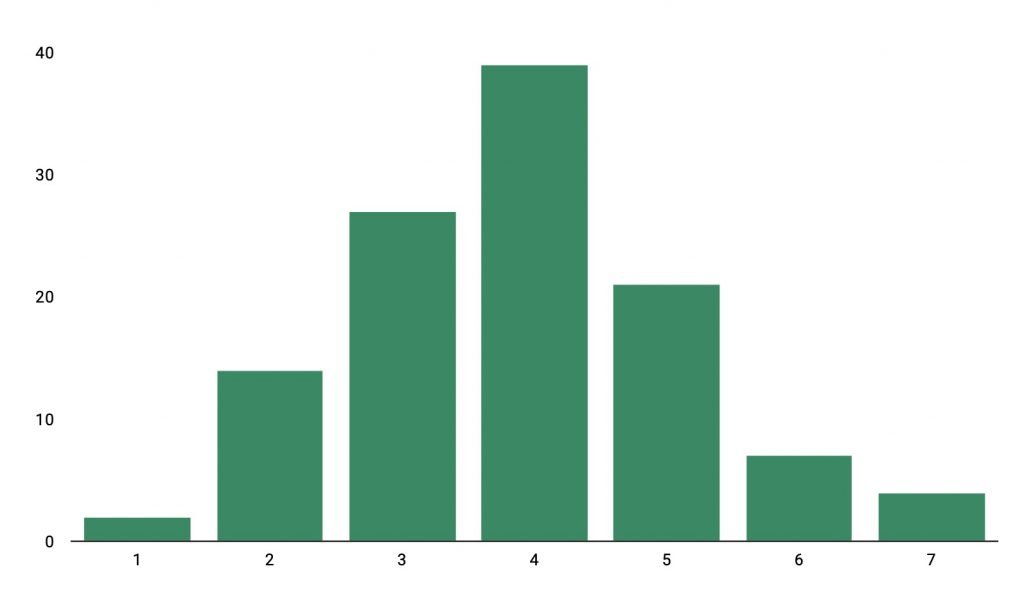
33 people felt their nutrition & healthy eating had been negatively impacted due to COVID-19 compared with 43 who felt better off. The difference between the two is the first overall positive impact factor of 1.3. A third of respondents (33%) said that the lockdown had had no impact on their nutrition & healthy eating.
Exercise 👎🏻👍🏻
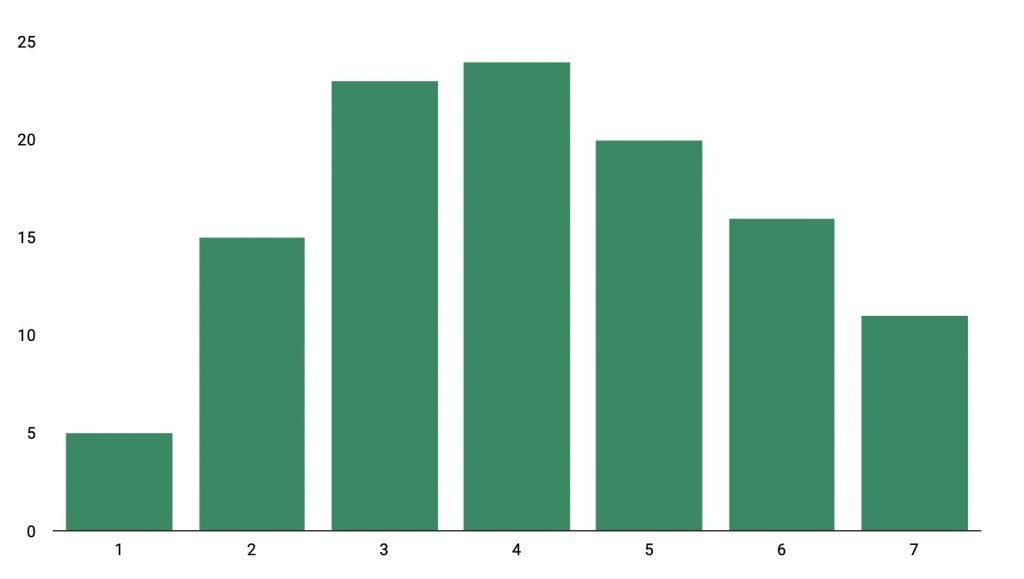
48 people felt their exercise had been negatively impacted due to COVID-19 compared with 43 who felt better off. The very small difference between the two is a negative impact factor of 1.1. 20% of respondents said that the lockdown had had no impact on their exercise.
Relationship with others in your household 👍🏻👍🏻
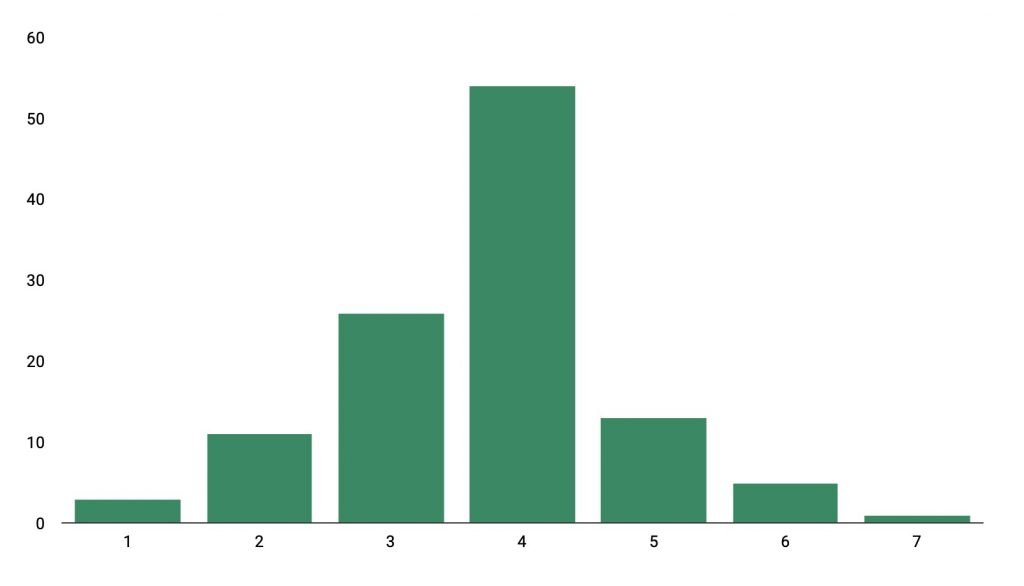
19 people felt their relationship with others in their household had been negatively impacted due to COVID-19 compared with 40 who felt better off. The difference between the two is the second overall positive impact factor of 2.1. Of all of the impact areas asked this was the one that the lockdown had had the biggest positive impact on. Half of respondents (48%) said that the lockdown had had no impact on their relationship with others in their household.
“Just one new habit”
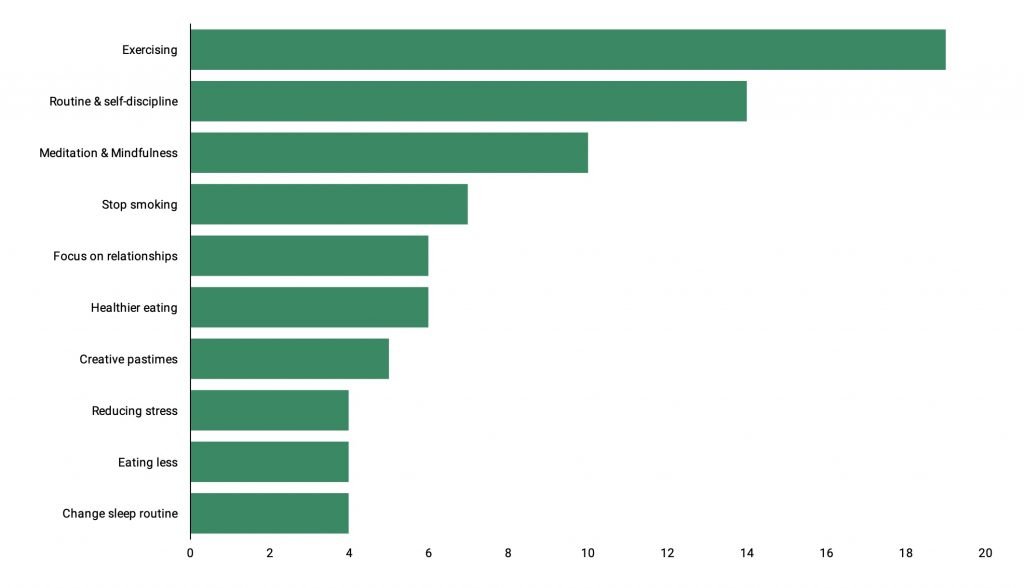
In response to the question “If there was just one new habit that you could start building (or breaking) now, what would it be?”. The horizontal “y axis” shows the number of people who chose that as their “one new habit”. Exercise was the most common response, followed by Routine and self-disciple and Meditation and Mindfulness.
Motivation
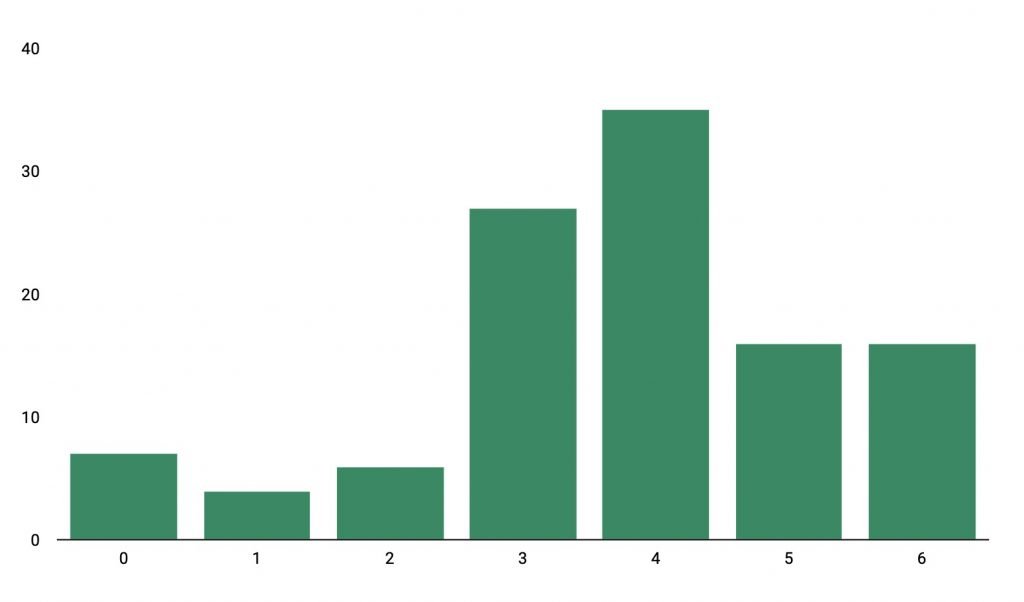
We asked people “How would you rate your motivation to make this change?” and provided a scale between 0 = none and 6 = heaps. 60% of people responded with a four or more, which on this “0 – 6” scale and in our experience indicates sufficient motivation to make a good start.
Have you already started making a change around this habit?
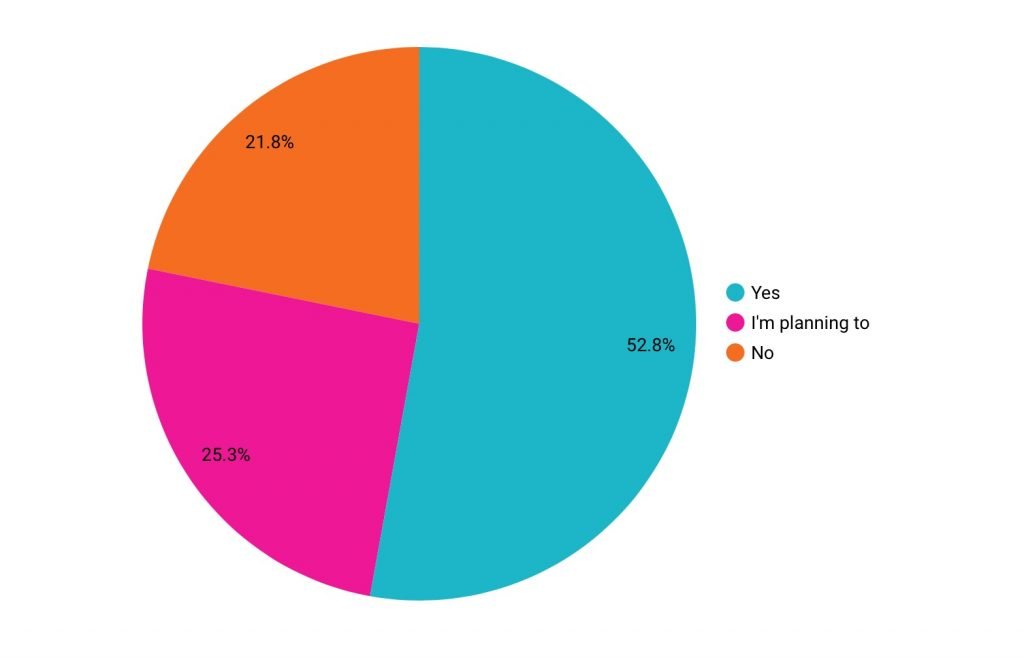
Our final question was “Have you already started making a change around this habit?”. Just over 50% of people said they had already made a start on the habit.
Wrapping up
Not since World War II has the world been put at risk by such a collective threat as this pandemic. In particular the financial well-being of a significant number of people and organisations has been negatively impacted, and will continue to be for some time to come.
However there are signs that some areas of our lives have either not been negatively impacted, or in some cases have actually been positively impacted. In my own personal experience for instance, whilst physical socialising has obviously been curtailed, socialising using digital mediums has largely offset what I have lost, and many old relationships have been renewed.
It has also been an interesting time to witness the varied responses of different countries to COVID-19, and learning collectively from one another about what is working and what is not. It highlights to me how our individual intelligence is both accelerated and increased by the sharing of our collective inquiry.
On a personal note, COVID-19, in conjunction with helpful prods from some friends, has been a useful kick-in-the-bum for me to move from planning and design into action. My Smartstart 4 week habit change program would otherwise still be sitting on the proverbial drawing board. If necessity is the mother of invention, then urgency is its father. One of the common elements that both the pandemic and habit change have in common is they are both non-trivial challenges that benefit from the sharing of experience. This “feature” of experience sharing of people facing a common challenge is embedded into Smartstart.
COVID-19 has been a wakeup call for us all. There is nothing like the experience of the loss of something that we take for granted to make us realise what is really important to us. As we anticipate moving through the worst of the immediate effects of the pandemic, I am feeling newly appreciative of living in this great country New Zealand, and sharing it with so many damned fine people.

